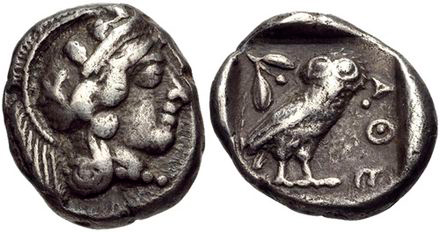Despite the fact that these definitions have such a vague meaning, we tend to use this word with some frequency in everyday life; even quite frequently, we might say. Phrases such as “this player has / has no talent” accompany young people in their training, whether in sports, art or any activity that these young people develop.
What we adults do not understand is the harm that can be caused by the misuse of a wrong definition of this word.
History
We are not going to expand on the etymology of this word or on studies of ancient societies, but there are certain curiosities we should know before talking about talent:
- In Roman times, a TALENT was equal to 6000 denarii and each denarius corresponded to the daily wage of a worker. We must bear in mind that at that time we were not talking about a work schedule of 8 hours a day, or rest on weekends, or vacations, or holidays (as today); Well, those 6000 denarii, working every day and all day, corresponded to the payment of approximately 16.5 years of work. Thus, we can ensure that, if someone dedicates that time to his job, that person will have talent in what he does.
- Another more recent curiosity is where the definition that we want to give to TALENT today mainly originates from. Well, this comes from the New Testament, with its mention in the parables of Saint Matthew (25: 14–30) and Saint Luke (19: 11–27). The curious thing is that in the parable of Saint Matthew, there are 3 servants who have different talents, although in different numbers. However, in San Lucas all the servants have only one talent; each one of them “works” it in different ways and generates different benefits and the one who “buries” it is “punished”. THERE IS NOT IN ORIGIN ANY SERVANT WHO DOES NOT HAVE ANY TALENT. Should this be taken into account?
- There is also a medieval definition of this word in Old French that has some curious references such as: will, desire and affection. These references define a direction, a vision to materialize.

Current use of the Word
We must not forget that originally TALENT was a CURRENCY or UNIT OF WEIGHT. Both of these reflect a development.
The coin itself refers to something that one has to earn; All currency in its origin is something that is exchanged for something else, be it work or the result of the development of a job. We are not talking about concepts such as stealing (which some in our society have developed to generate that CURRENCY), since this is something that comes out of all education based on elementary values.
Therefore, the origin of this word is based on development and work; but every time we listen to it, it has completely opposite references to that meaning.
Now we are going to analyze all the references with which this word is used. To say that someone has talent today for many means:
- The person manages to complete a difficult activity with ease.
- The person does without much effort something that for others involves more effort.
Whenever the word talent is pronounced, there are two inherent references: one is a lack of effort and the other comes from something unknown, divine or that exists before birth.
Examples
We are going to give examples through tennis, but the same idea can be transferred to any other activity.
The denomination of talent in tennis usually refers to:
- Ease of mastering the ball, touch, sensations, “touch” (as we call it on the court).
- The beauty of strokes, the fluidity of gesture, development of the game without spending a lot of energy, achieving goals of greater effort.
These two concepts are the main aspects for which a player is called: TALENTED.

But…
The ease of mastering the ball or the touch, is it something you are born with or something you do? Let’s talk about certain players who lack a sense of effort or value of respect:
– A player who physically makes minimal efforts in training tends to hit the ball in uncomfortable positions since he does not move. These uncomfortable positions force the wrist (touch) to adapt to each blow and this multiplied by days and years generates great ease of TOUCH. Therefore, a “lazy” player develops the wrist, has good sensations and good touch, and this development is achieved as part of his NOT WORK, his NO EFFORT; and this is something that, according to my point of view, cannot be praised and does not belong to a divine gift, but to simple laziness and disrespect for what he does.
– Now let’s go to the other case, the value of respect. We have always seen players who “play” as a lack of respect for their opponent or thinking that they are better than others; These players, when they see certain ease in winning the game, begin to generate blows that appear less effort, thus humiliating their opponents, since only winning is not enough. This type of game, multiplied by days and years of development, generates certain blows that can seem deceptively easy; but it is not like that, it is an equally worked repetition of a certain way of a game that in turn is based on a not commendable concept.
Conclusion
With everything we have seen above, with slight changes depending on different times and societies, what we call TALENT and motivate young people to appear is:
- Less effort.
- No to work.
- Not respecting the work.
- Not respecting the opponent.
Is that really what we want to teach them?
I urge you to think about these references when you pronounce the word TALENT; you will see that they are all explained with the same formula.
Talent DOES exist!
Although this entire article is based on denying what today’s society calls talent, I still believe in its existence and I have seen it in many young people that I have met throughout my professional career.
The talent that I have seen in each of them is UNIQUE and UNREPEATABLE, as a hallmark of each one’s personality, in their own way of seeing the world. Most of that talent and its discovery in person is traceable. I repeat its discovery, since the core of that capacity and its secret is personal and non-transferable. All talent is the result of great development work and aimed at self-discovery.
And that brings me to another statement: WE ALL HAVE TALENT, but NOT EVERYONE DISCOVER IT. And our job as a guide, as in my case is that of a coach, forces me and motivates me so that each student finds their talent; although sometimes the search can last a lifetime.










